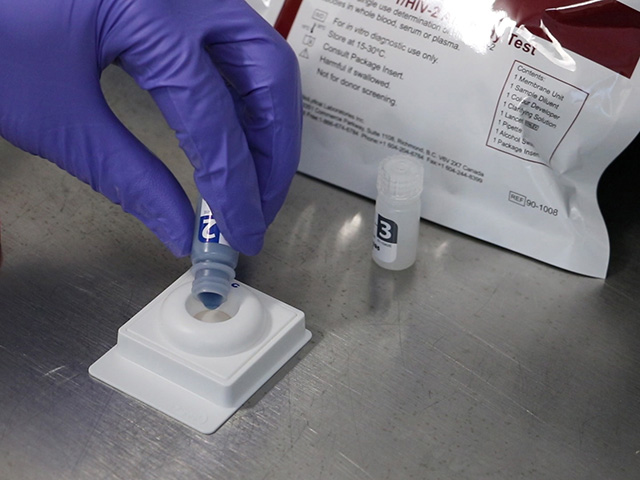Ten years ago, Ryan Sneath became the first Winnipeg Fire Paramedic Service (WFPS) member to be stationed out of Main Street Project.
“When I first came in January 2009, we had minimal equipment,” he said. “I had a trauma bag, a blood pressure cuff, an oxygen saturation monitor, blood glucose monitor, and my stethoscope.”
The Community Paramedicine Program started at the facility because of a provincial inquest into a death in custody.
“I knew we were filling a gap where there wasn’t previously care provided,” said Sneath, who is now the WFPS’s Assistant Chief of Paramedic Operations.
Community paramedics, based at Main Street Project, provide medical clearance for intoxicated individuals coming in for detainment as well as primary and emergency care for the entire facility.
When the program first started, around 600 ambulances were being dispatched to the facility annually, and roughly the same number of patients being transported to hospital.
Sneath said it didn’t take long for them to significantly reduce the number of transports.
WFPS staffs paramedics at Main Street Project 24 hours a day, seven days a week. They see roughly 15,000 patients a year.
By connecting those patients with resources in the community and providing consistent medical care, the community paramedics have helped create efficiencies within the health care system.
Through various partnerships, the program has evolved and paramedics now offer screening for HIV and tuberculosis, immunizations, and community IV antibiotic program.

He added the program’s success is a direct result of the paramedics working out of Main Street Project.
“The paramedics that work here genuinely care about the clients and they have a vested interest in seeing those improved outcomes,” said Sneath.
It is with support from Main Street Project, patients are able to get to their appointments to ensure continued care.
“For us, to be able to work collaboratively with someone who as the same goals, passion, and vision as you produces great outcomes for the patients we interact with,” said Sneath.
